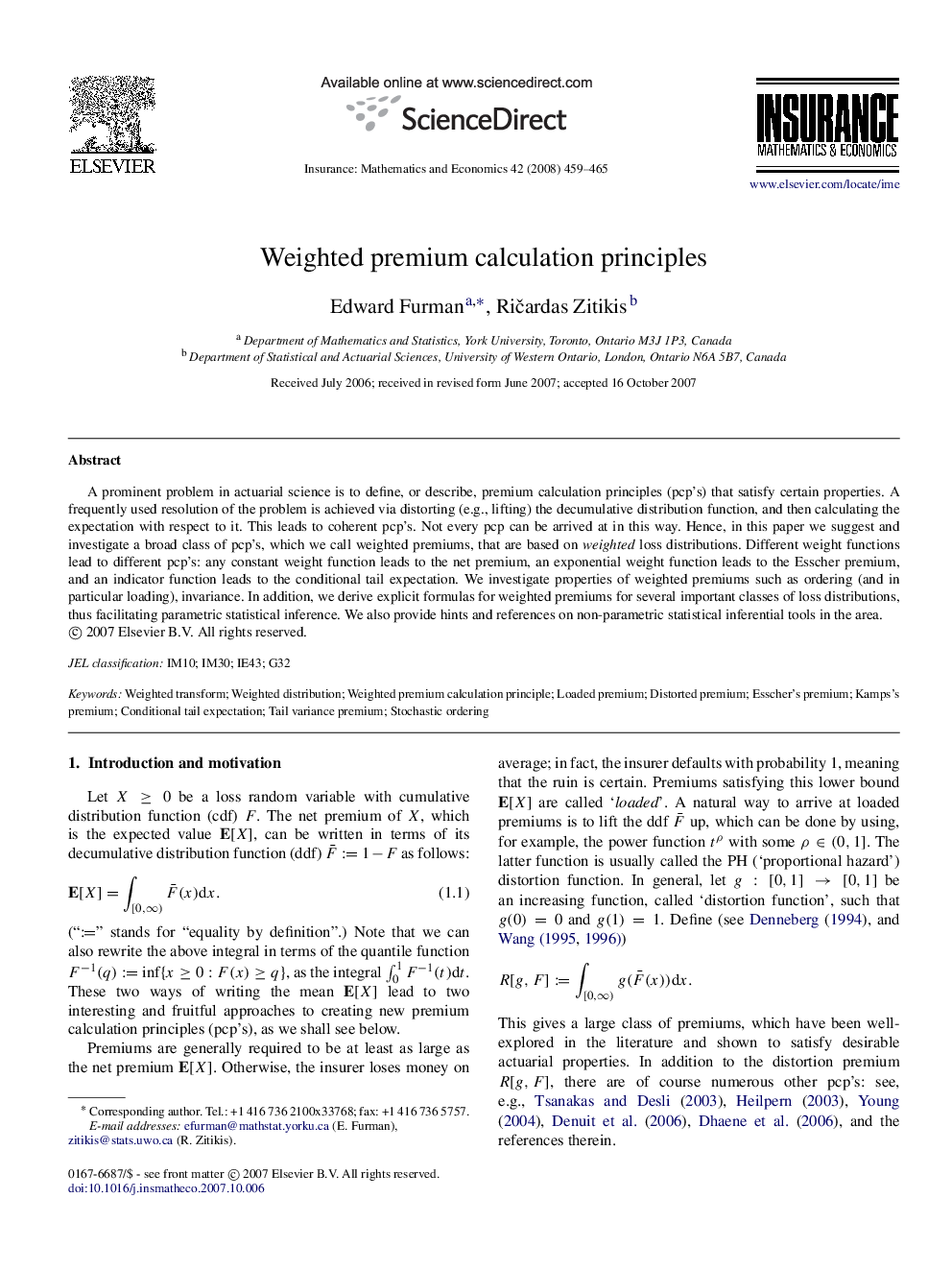| Article ID | Journal | Published Year | Pages | File Type |
|---|---|---|---|---|
| 5077387 | Insurance: Mathematics and Economics | 2008 | 7 Pages |
Abstract
A prominent problem in actuarial science is to define, or describe, premium calculation principles (pcp's) that satisfy certain properties. A frequently used resolution of the problem is achieved via distorting (e.g., lifting) the decumulative distribution function, and then calculating the expectation with respect to it. This leads to coherent pcp's. Not every pcp can be arrived at in this way. Hence, in this paper we suggest and investigate a broad class of pcp's, which we call weighted premiums, that are based on weighted loss distributions. Different weight functions lead to different pcp's: any constant weight function leads to the net premium, an exponential weight function leads to the Esscher premium, and an indicator function leads to the conditional tail expectation. We investigate properties of weighted premiums such as ordering (and in particular loading), invariance. In addition, we derive explicit formulas for weighted premiums for several important classes of loss distributions, thus facilitating parametric statistical inference. We also provide hints and references on non-parametric statistical inferential tools in the area.
Related Topics
Physical Sciences and Engineering
Mathematics
Statistics and Probability
Authors
Edward Furman, RiÄardas Zitikis,
